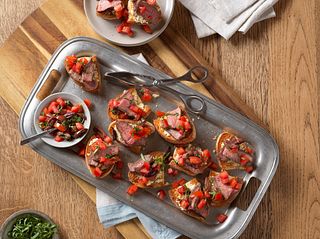Dr. Tommy Wheeler: Over 3 Decades of Transformative Meat Research in Nebraska
Wheeler grew up in Muleshoe, Texas on a row crop farm with cattle, pigs and horses. He became interested in meat science after competing in meat judging through FFA. For college, Wheeler attended Texas Tech University, where he continued meat judging, and majored in agriculture economics. He continued on in his education to get a master’s degree at Texas Tech, and a PhD at Texas A&M, both in meat science.
“While I was getting my PhD I figured out I was a lot more interested in research than I was teaching,” said Wheeler. “So I looked for research opportunities and found the vacancy here at the US Meat Animal Research Center. I was fortunate to get that position and it has really turned out to be my dream job.”
Wheeler’s focus of research has changed throughout the years. Initially, he says it was about meat quality, especially tenderness, where he helped determine differences in quality and palatability among different breeds of cattle. He says around the year 2000 his role changed to add a food safety focus. He has worked on the research teams that developed the instrument that is currently used for grading beef carcasses, and the hide-on carcass wash cabinet to improve beef safety, among many other studies.
“We try to focus all of our work on practical things that industry will be able to implement and make positive change,” says Wheeler. “Sometimes it works and sometimes it doesn't. I think that’s the nature of research.”
More recently, with the support of the Nebraska Beef Council, Wheeler led a study that helped develop the MicroTally. This is a cloth for sampling the trimmings from beef for pathogen testing, and it is now used extensively.
Aside from a career full of substantial meat science research and studies, Wheeler enjoys creating his own jerky, and says it is some of the best around.
“I kind of doctored my own version and have worked out the recipe over the years,” said Wheeler. “A lot of people tell me that I have ruined them for eating commercial beef jerky.”
####
The Nebraska Beef Council is a non-profit organization served by a nine-member board of directors. The volunteers oversee the beef checkoff in Nebraska and checkoff-funded programs. Programs for marketing and promotion are funded by the $1/head beef checkoff.

Share This Page